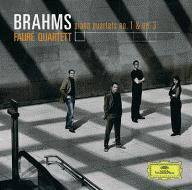Johannes Moser’s North American Orchestral Dates Include Dvorák’s B-Minor Cello Concerto for Pittsburgh Symphony Debut
The season opened auspiciously for Johannes Moser, “one of the finest among the astonishing gallery of young virtuoso cellists” (Gramophone), when his Hänssler CLASSIC album of sonatas by Britten, Bridge and Bax was named “Recording of the Month” by MusicWeb International, which advised, simply: “Don’t miss this.” Now the German-Canadian cellist turns to the instrument’s orchestral repertoire, undertaking two of the finest examples with North American orchestras. First he performs Dvorák’s B-minor Concerto for his debut with the Pittsburgh Symphony (Nov 26 & 28), as well as with Ottawa’s National Arts Centre Orchestra (Nov 18 & 19) and LA’s American Youth Symphony (Nov 21), before tackling Schumann’s Cello Concerto with the Vancouver Symphony (Dec 4).
Dvorák was initially reluctant to even attempt his Cello Concerto in B minor (1894-95), believing that “as a solo instrument” the cello was too quiet in its middle register to be “much good.” However, his solution – saving the cello for the orchestra’s quieter moments – helped establish his only completed cello concerto as one of the undisputed masterpieces of the genre, and moved Brahms, famously, to exclaim: “Why on earth didn’t I know that one could write a cello concerto like this? Had I known, I would have written one long ago.” Moser has already proved “an accomplished soloist” in his interpretation of the work with the Los Angeles Philharmonic and Zubin Mehta, playing with “robust, vital attack, brilliant technique, and outsized passion” (Los Angeles Times). Now the cellist takes his interpretation to three more American orchestras, starting with two performances in Ottawa with Pinchas Zukerman’s acclaimed National Arts Centre Orchestra and guest conductor Julian Kuerti, former assistant to James Levine at the Boston Symphony (Nov 18 and 19). Then, following an appearance at the Annual Gala Celebration of the American Youth Symphony under music director Alexander Treger (Nov 21), Moser makes his much-anticipated Pittsburgh Symphony debut, joining Austrian maestro Manfred Honeck for two traversals of the Dvorák as part of the orchestra’s Thanksgiving Weekend celebrations (Nov 26 & 28).
A profound influence on Dvorák’s composition was Schumann’s Cello Concerto (1850), which was the first to eschew the flashy pyrotechnics of the traditional 19th-century virtuoso concerto for a more subtly expressive sound-world. The cellist and conductor Pablo Casals called the concerto “one of the finest works one could wish to hear – sublime music from beginning to end,” and, according to Australia’s Sydney Morning Herald:
“One could scarcely find a better embodiment of the creative spirit than cellist Johannes Moser, whose beautifully pitched performance of Schumann’s Cello Concerto in A minor, Op. 129, pushed ideas to the boundaries so that each thought was characterized with insistent individuality. Moser played Schumann’s expansive opening melody as a narrative of singular troubled passion, full of intense shades. He would seize low notes as though suddenly possessed of a darkened thought and play the excited passage work of the coda as though on a reckless downhill ride.”
For his performance of the Schumann on December 4, Moser reunites with Julian Kuerti, who will take the helm of the Vancouver Symphony.

Comments